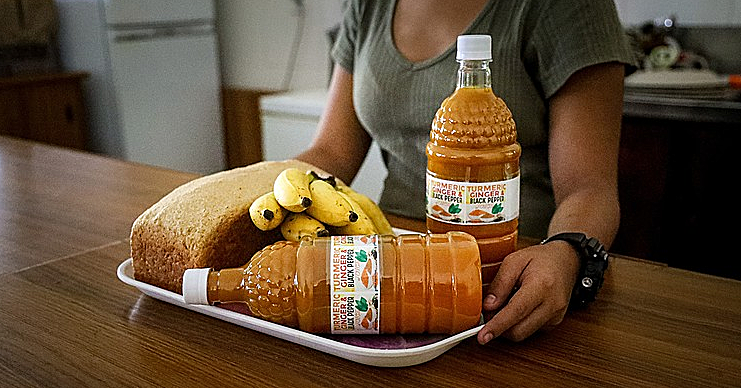Democracy and Samoan governance values
Our last column touched on the critical role of the media in a democracy in keeping the people informed about their government.
We may recall that democracy is a system of government founded on certain governance principles, chief amongst which is the belief that power belongs or emanates from the governed, the people that is.
Through a periodic selection process of free and fair elections, the people decide which group or political party they will entrust that power to govern to.
And having been entrusted with that power to govern, and adhering to democracy’s other principles of accountability and transparency, governments then report to the people through a prescribed system of reporting and of checks and balances centered principally around the institution of Parliament with its adversarial political party system.
And as we said in our comment on the role of the media, in addition to this built-in state accountability apparatus and system, there is also the media – the Fourth Estate - making sure that the result of all this monitoring and evaluation process reaches the people who ultimately choose the government of the day.
In today’s increasingly complex environment, civil society groups such as the church, professional groups like lawyers, trade unions and a host of other special interest groups also play an advocacy part in facilitating the flow of information and knowledge between the state and the general public. The result is an electorate that can decide on matters of government from a more informed and empowered position.
But we are describing here democracy as it was designed and meant to operate. We see functioning examples of that today in countries such as New Zealand that bequeathed democracy to us in the first place.
Unfortunately, democracy in Samoa as we said before has been progressively undermined over the past thirty or so years and usurped by what its exponents and creators are calling Samoa’s own form of democracy. Friday’s Samoa Observer has regular correspondent Wendy Wonder asking about this very subject. What is Samoan democracy for example and how is it different if so from the Westminster system Samoa adopted at independence?
Simply stated, Samoan democracy is described as a marriage or fusion of Westminster and Faa-Samoa. One assumes that this is really about applying democracy, a governance system based on universal principles and values in Samoa with its uniquely Samoan way of life and governance values and practices.
Indigenization or Samoanization are other terms one sees being used to describe this process of adapting outside ideas and systems to fit in with Samoa’s own world view. Context is important of course when making use of ideas and systems from elsewhere. It’s a process that is both necessary and unavoidable for Samoa as it is for everyone else economies and cultures become integrated under globalization today.
But this process of contextualization and adaptation goes too far when it ends up replacing the global principles and values of systems such as democracy with Samoan principles and values which apply only in the Samoan cultural context and nowhere else.
These Samoan values and principles on governance are alive and well and may be observed at village level today, so it is not difficult to see how they differ fundamentally from the universal principles that undergird democracy. It is also possible to see how kin and kith based Samoan governance values are ideal for small localized village groups, but are no basis for governing more diverse communities, let alone a modern state.
For example, in the village setting, power is vested at the top with the village council, who are inevitably our own flesh and blood. But it’s another world the moment one steps outside that setting. Governance requires universal values of equality for all and power being vested in the individuals acting in community with others like them.
Principles do not change. Their application may be changed to suit a particular context, but the principles themselves do not change. Take for example the introduction of universal suffrage in Samoa (enactment of the principles of equality under the law, and the governed being the source of political power).
Samoa was not ready at the time of independence to contemplate the idea that adults other than matai can be included in the decision making process. And so to begin with, only matai voted in the general elections. Voting in the earlier UN sponsored national plebiscite which verified the national consensus on Samoa becoming an independent nation was different in that universal suffrage was used.
But it did not take long for the damaging effects on the matai system itself of the “marriage” between the two governance systems. Today’s universal suffrage is the outcome.
Christianity is another outside system with universal founding principles that has been “married” with Faa-Samoa with quite far reaching results. “E tua le Tala Lelei ile aganuu, e tua foi le aganuu ile Tala Lelei” is a mantra like description of the level of interdependence achieved by these two institutions.
It is a relationship reminiscent of the alliance (some say unholy alliance) between the church and the state in medieval Europe during a period in history otherwise referred to as the Dark Ages. It was a period of apostasy and departure from the Bible and the Gospel’s purity and simplicity for the church. It was brought to end with the Reformation and the political and social convulsions that changed the face of Europe for ever.
We see similar developments in Christianity in Samoa today with excessive pre-occupation with pomp (mamalu), material wealth and worldliness in the churches as Samoa’s cultural values and practices of making a public show of giving take the place of Christianity’s principles simplicity and purity reflected in the life and mission of its founder.
With the economic and social elevation afforded by the power of culture, the church has become so powerful in fact that the government and politicians want a part of it too. Public worship in every form is a big part of public life today.
But it goes further than that today as Samoa has just been officially made a Christian state, a departure from the doctrine of state and church separation that our original constitution took great pains to honour and maintain. The change may yet turn out to be a two edged sword for the church, for government now has a right it did not have before, to intervene in religious matters. Taxation is one of these.
The need for informing and educating the people about democracy has been correctly pointed out by correspondents Keith Alderson and JF “A more informed population is better.” Democracy is a foreign system introduced and installed from the top without any real ground work done to facilitate grassroots understanding and participation.
But that would not have been a terminal weakness as shown elsewhere had power addiction not become a prominent motivation in politics in Samoa in the last thirty or so years.
Sad to say, after a promising start on the growth path towards strengthening our emerging national democratic institutions and democratic culture, the process was hijacked to make way for the one party state and the so-called Samoan democracy we have today with its damaging and ultimately dangerous power concentration in a few mortal hands.
(To be continued)









